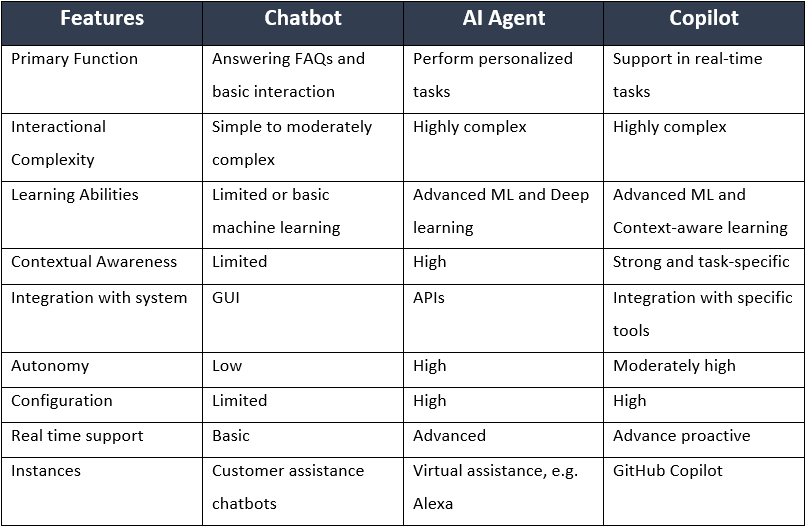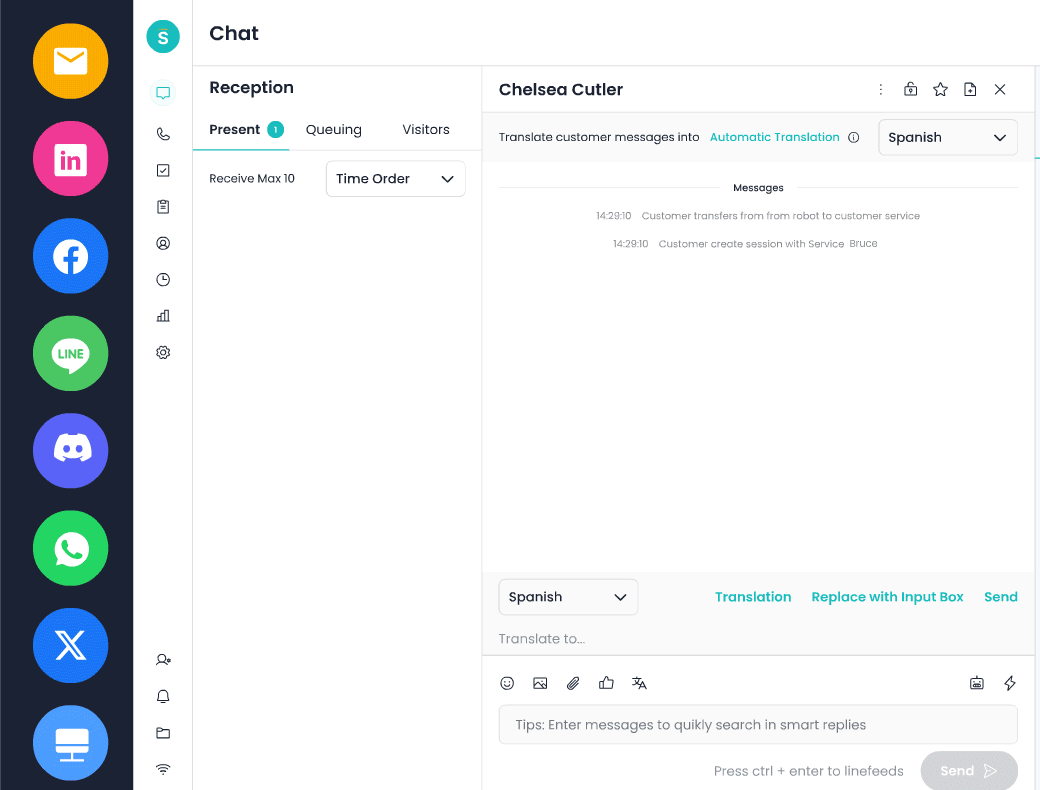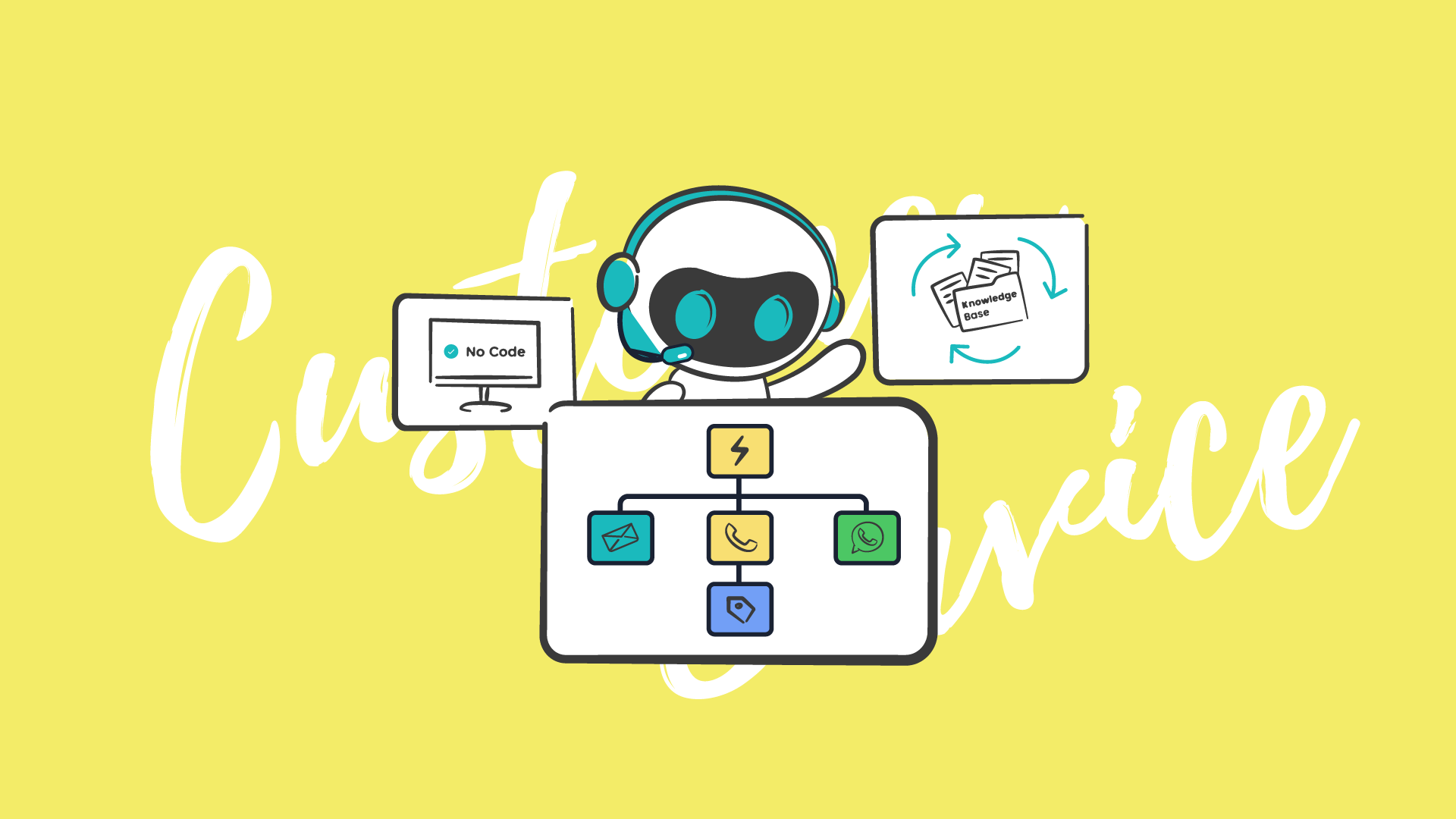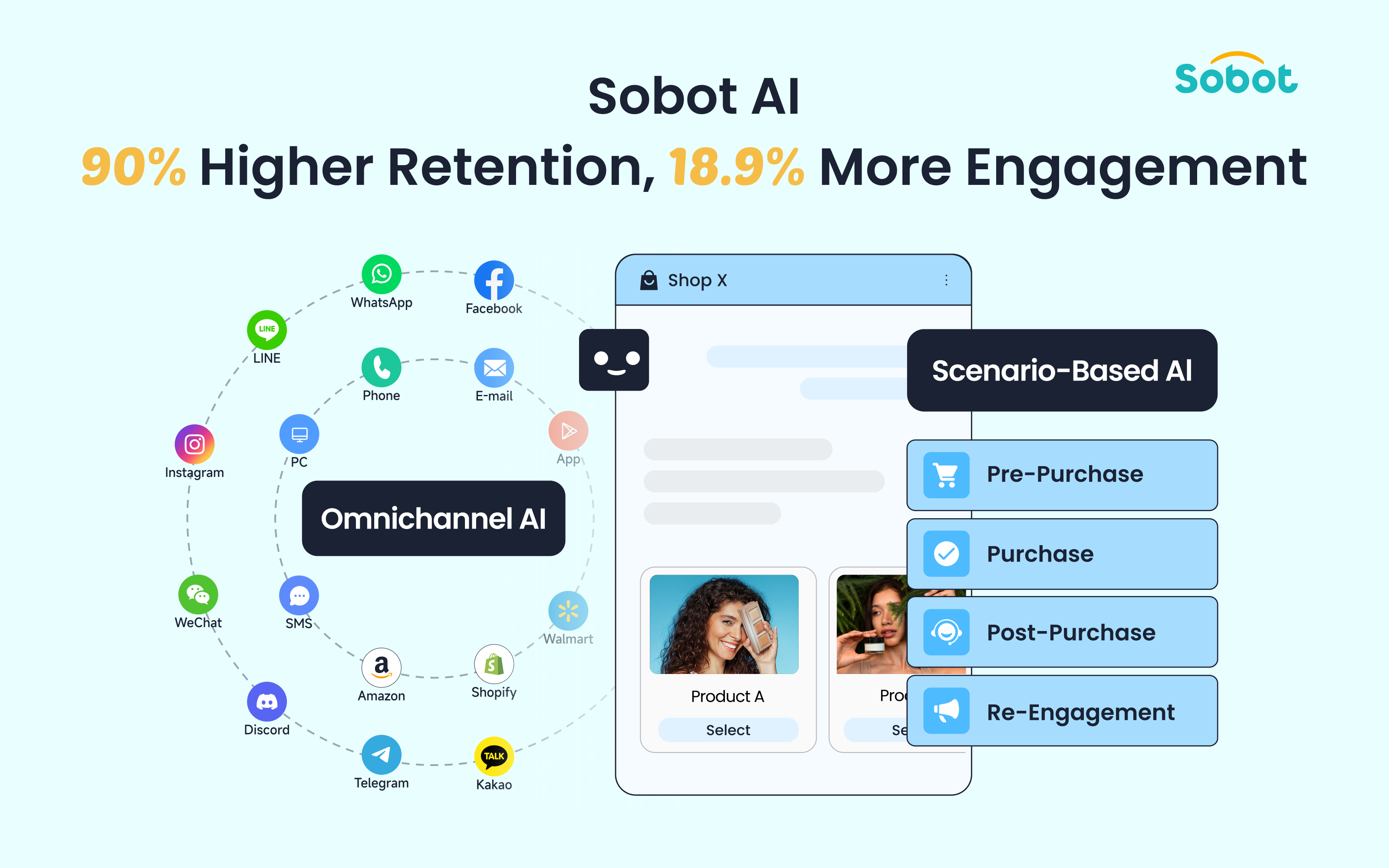Artificial Intelligence (AI) is transforming business customer experiences as technology evolves. AI will impact customer service, with chatbots managing routine queries and predictive analytics forecasting client demands.
Large volumes of customer data are analyzed by AI-driven technologies to provide highly customized experiences, customizing solutions, and strategies to meet the needs of specific customers. In addition to increasing customer satisfaction, this efficiency and adaptation optimizes business procedures, enabling businesses to provide better and more extensive customer service.
Importance of Customer Service in Business
Good customer service requires listening to and respecting your customers’ choices. Exceptional customer service is a reflection of a company’s culture; both of these go hand in hand. Customers will appreciate your corporate culture if you continue to provide excellent customer service.
However, the impacts of excellent customer service radiate beyond corporate culture. Offering exceptional customer service has several practical effects on your company’s success as well as the public’s perception of it.
A business that provides exceptional customer service has a staff that does more than just respond to inquiries and handle problems for clients. A firm may save a lot of money and perhaps gain a lot by offering exceptional customer service. Improving the customer experience may boost sales revenue by 2-7% and profit by 1-2%.
The Impact of AI on Customer Service
The AI industry is expected to grow rapidly, from $86.9 billion in 2022 to a projected $407 billion by 2027. AI is impacting every aspect of customer service, from drive-through restaurants serving fast food to other industries. Experts contend that AI isn’t about replacing humans completely, despite the fact that 77% of respondents worry that it may replace human employment in customer care.
As an effective assistant, AI manages repetitive duties instead of taking on these roles. This results in a 14% improvement in issues handled per hour by facilitating more seamless interactions between customers with support services and reducing stress for customer care staff.
Introduction to Chatbot, AI Agent, and Copilot
Chatbot vs AI Agent vs Copilot: The AI Matrix

AI Chatbot
Today, chatbots are an essential component of daily life. Users today want better, faster, and more personalized interactions. Chatbots are designed to respond to inquiries in a matter of seconds. Without chatbots, it is impossible to exceed client expectations in the business world. AI-powered chatbots are an important tool for satisfying customer expectations because they are designed to respond to inquiries with prompt responses in milliseconds. This capacity to respond quickly and personally is not just a way to improve the customer experience; it’s also a way to use AI innovation to significantly increase client retention and engagement.
Chatbots are developed to simulate human interaction using AI. They automate repetitive tasks like processing requests and responding to frequently asked questions, streamlining customer interactions via text or voice. The capacity to respond quickly, manage recurring questions, and be available around the clock are among the core competencies of chatbots. However, there are several drawbacks such as a lack of emotional intelligence, trouble comprehending advanced questions, and the possibility of inaccurately analyzing user intent, which requires human engagement in order to facilitate more complicated interactions.
Source: 7 Benefits of Using Chatbots for Customer Support
AI Agent
An AI agent is a smart, highly effective virtual support that works independently. It is built with the ability to sense its surroundings, analyze information, come to intelligent conclusions, and perform tasks to meet specified goals.
Training and adaptability are two essential features of AI agents. Through the use of technologies like Large Language Models (LLMs), they enhance their capabilities through continuous interactions, thus becoming increasingly complex and insightful agents.
An AI agent’s main capabilities include automating activities, giving real-time insights, and improving decision-making processes. Their proficiency lies in natural language processing, predictive analytics, and data analysis. However, they limit themselves by their dependency on high-quality data, possible inaccuracies, and a lack of emotion and originality akin to that of humans. Their efficacy decreases in advanced, unorganized scenarios where human perception and expertise are vital, necessitating continuous supervision and improvement for optimal functionality.
Source: AI agent for customer service
AI Copilot
Copilots built into customer relationship management (CRM) systems allow agents to communicate directly with customers. The Copilot gives agents access to generative AI-based assistance materials, which lowers costs and permits scalability while improving agent proficiency, productivity, and customer engagement.
Copilot provides agents with real-time feedback to improve their performance. It easily embeds into preexisting workflows, enabling better problem-solving.
Through contextual recommendations and real-time cooperation, Copilot technology combines AI to help users with a series of tasks. It performs exceptionally well in processes requiring customization and advanced problem-solving, employing continuous model training to get better over time. They are capable of improving outcomes, bringing innovative ideas, and assisting with decision-making. Although copilots are very helpful, they might have to be supervised and validated by users to make sure that their outputs are relevant and of high quality.
Source: Overview of Embedded Copilots
Applications of AI in Customer Contact and Customer Service
Amazon – Automated Customer Service
Amazon has employed artificial intelligence (AI) to transform its customer support processes, drastically boosting customer service and efficiency. Here are the primary ways in which Amazon has done this:
Amazon Lex: Transforming Customer Service through Conversational AI
With Lex, Amazon can create chatbots that automate repetitive operations and save human effort by answering frequently asked questions and tracking orders.
Alexa’s Role in Streamlining Amazon’s Customer Service
Alexa enables customers to handle their Amazon accounts by voice, offering a hands-free way to make orders, track shipments, and receive personalized recommendations, thus improving customer satisfaction.
AI-powered Customer Support Agents
AI-powered agents support human agents by ensuring consistent replies, quicker resolutions, and offering real-time ideas.
Sentiment Analysis: Transforming Customer Service Strategies
Amazon monitors and comprehends client feedback in real-time with AI-driven sentiment analysis, which enables prompt issue detection and resolution to improve buyer satisfaction.
Source: Amazon Lex, Alexa Features
Netflix – Personalized recommendations
One of the main components of Netflix’s client retention strategy is the usage of AI for personalized suggestions. A much-tailored user experience is created by Netflix using massive data and the latest machine learning algorithms, which keeps users engaged and loyal.
Gathering and Examining Data
A lot of user information is gathered by Netflix, including rankings, searches, and watch time.
ML Algorithms
It analyzes the data and makes personalized suggestions using machine learning algorithms such as content-based filtering and deep learning.
Scalable personalization
Based on the preferences of each user, Netflix personalizes homepage visuals, trailers, and thumbnails in addition to content recommendations.
Never-ending User Experience
To improve recommendation accuracy, the platform iteratively improves its algorithms based on user feedback and A/B testing.
Impact on Customer Loyalty
Tailored recommendations keep users happy and eager to explore more information, which enhances user experience, boosts interaction, and minimizes churn.
H&M – AI-enabled customer service
For a while now, H&M has been successfully employing AI in the provision of customer service. Their chatbots for customer support have shown to be quite helpful in the retail industry. The AI can help with product details, size, availability, shipping alternatives, returns, and more.
The H&M Virtual Assistant acts as a personal shopper, offering customized outfit suggestions and fitting recommendations. Additionally, it is designed to respond to inquiries from customers concerning refunds, store locations, and operating hours.
To learn about users’ preferences for style, the chatbot asks a set of questions to draw their interest. It then uploads photos of clothing to answer users’ questions about style. Additionally, the chatbot allows users to look at previously created designs and select their favorites by clicking a like.
The positive impact of using AI in H&M customer service
- The adoption of generative AI by H&M has considerably simplified the online clothes and accessory shopping experience for customers.
- When compared to human chat operators, the AI chatbot on their website has remarkably shortened response times by 70%.
- Through AI-driven generative voice assistant, customers may also experience voice search within the mobile app.
- By leveraging AI, H&M has been able to significantly lessen the workload of its customer care staff while providing buyers with a more efficient and enjoyable shopping experience.
Starbucks – AI-Powered Personalization
Starbucks has to deal with several issues, including improving menu personalization, reward programs, and consumer engagement.
Starbucks discovered a way to cater to these challenges using AI in today’s technological age. Starbucks employed several AI-driven programs to improve tailored client experiences by leveraging its vast database of customers.
Tailored Recommendations
Starbucks employed AI algorithms to evaluate consumer data, such as purchase history, preferences, and demographics, to provide personalized recommendations. Through the utilization of this data, they were able to provide consumers with customized suggestions for food and drink items, allowing them to find new items based on their preferences.
Real-time Pricing
Starbucks implemented artificial intelligence (AI) to dynamically modify prices according on multiple factors, including consumer patterns, time of day, and their geographic location. Because of the proper pricing during peak hours, they were able to give customized offers and discounts to their customers, boosting their interaction and loyalty and generating enormous profits above even regular orders.
Voice Assistant and Mobile Ordering
Starbucks added AI-powered capabilities to its voice assistant and smartphone application. Customers could now place orders, receive tailored suggestions, and even make transactions using voice commands or via the app, resulting in a more smooth and personalized shopping experience.
Key Takeaways
AI is changing the game for companies looking to provide great customer service in a world where demands are greater than ever. AI is changing how businesses engage with their consumers; from chatbots answering common inquiries to AI agents and copilots offering personalized help. Instead of trying to replace human labor, this technology will increase human workers’ capacities so they can focus on more difficult and critical jobs.
Chatbots and other AI-driven technologies are becoming critical for companies trying to live up to the expectations of their modern clientele. These chatbots give prompt and tailored replies, making consumer interactions more efficient and pleasant. Though chatbots are very helpful, it’s vital to keep in mind that they do have certain drawbacks, such as low emotional intelligence and difficulty grasping more complex queries. This is where human assistance becomes vital.
AI agents and copilots take things a step further, providing real-time insights, better problem-solving, and improved decision-making competencies. They easily fit into current workflows, enhancing both customer engagement and efficiency.
The advantages of AI in customer service are demonstrated by real-world instances from major players in the market, like Amazon, Netflix, H&M, and Starbucks. AI is widely used by Amazon to improve customer service in a variety of ways, including sentiment analysis and conversational interfaces. While H&M’s AI-powered chatbots and virtual assistants expedite the buying process, Netflix’s tailored suggestions maintain viewers’ interest and loyalty. Starbucks uses artificial intelligence (AI) to improve consumer pleasure and loyalty through personalized recommendations, dynamic pricing, and an easier mobile ordering experience.
In summary, AI is transforming customer service by improving productivity, satisfaction, and personalization. Companies that successfully use AI into their customer care programs will surpass customer expectations and increase engagement and loyalty to unprecedented levels. AI technology is expected to play a more important role in client relationship management as it develops, opening up new possibilities for organizations to provide remarkable customer experiences.
(The information in the article is collected from public channels. If the data or pictures are infringing or inaccurate, please contact us to delete or modify it.)






